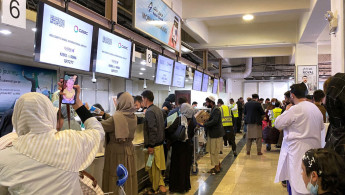Afghanistan: Judge feels betrayed by UK government who refuse to offer refuge despite high court order
A senior Afghan judge said he feels "heartbroken" and "backstabbed" by the British government who refused to offer him sanctuary despite a high court ruling in his favour.
The Afghan, kept anonymous for his own protection, worked closely with British and American forces to prosecute the Taliban, Islamic State group [IS], Al-Qaeda and Haqqani, reported The Guardian.
Yet, despite a high court ruling in April supporting his claim for UK refuge, the British government said the judge does not meet their policy criteria. Officials said he made a "minimal" effort to UK counter-terrorism efforts in the country and did not work directly for the British government, reported The Guardian.
"I am shocked by the government’s decision to refuse to relocate me in the UK. I was once considered an important ally," the Afghan said, as quoted in the British newspaper.
"I do not regret serving justice upon those who killed innocent people including UK government personnel, but I am heartbroken, abandoned and feel backstabbed by the government for refusing to relocate me in the UK. I plead with them to save my life and the lives of my family."
"Some days we are not lucky"@mmodaser sheds light on Afghanistan's dire #Ramadan under Taliban rule 👇 https://t.co/T2kIfmb3zA
— The New Arab (@The_NewArab) April 23, 2022
The individual is now planning to travel to Pakistan to a UK visa-processing centre to complete his biometrics.
If the UK government then refuses the visa, he could be deported directly into the hands of the Taliban.
The Afghan has been forced to hide away from other family members and has not had direct phone conversations with them for fear his whereabouts is revealed.
"The thing that makes this particularly pernicious from our government is that during the evacuation of Afghanistan [in August] they did not take biometrics until people had landed in the UK," said Louise Calvey of Refugee Action on Twitter.
"Proving its perfectly possible to help this human in need of our protection," she added.
The British government promised to relocate up to 20,000 Afghans following the fall of Kabul.
They proposed two schemes: The Afghan Relocations and Assistance Policy (ARAP), designed to support formerly employed staff, and the Afghan Citizens Resettlement Scheme (ACRS), established to support those who assisted UK efforts and "stood up for values such as democracy".
The UK Ministry of Defence claims to have relocated over 9,000 applicants and their dependents under the ARAP scheme, and said in a statement: "We recognise the challenging circumstances faced by Afghans applying to resettle in the UK".
The ACRS was opened in January this year, according to the British Home Office. However, refugee advocates, including Calvey, have criticised the scheme for "leaving the most vulnerable hiding from the Taliban while our government fight to stop them finding safety here".





 Follow the Middle East's top stories in English at The New Arab on Google News
Follow the Middle East's top stories in English at The New Arab on Google News


